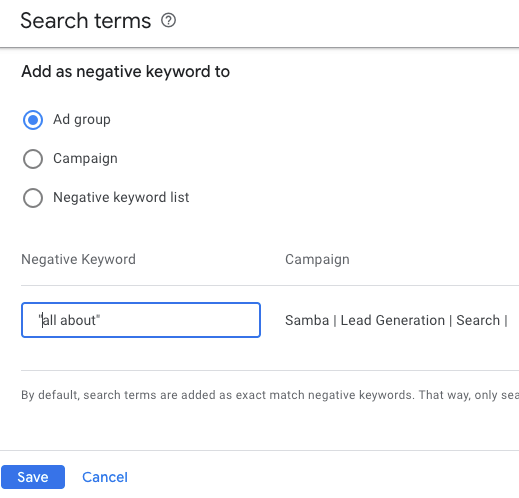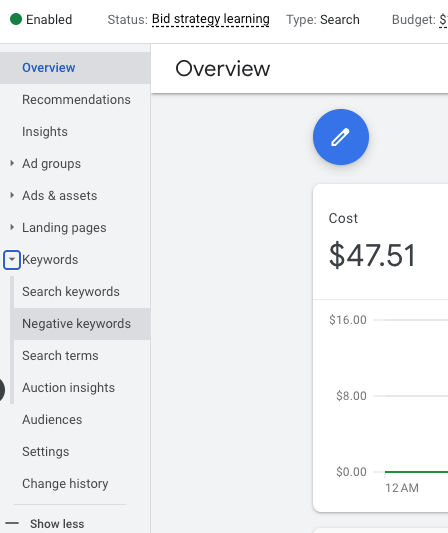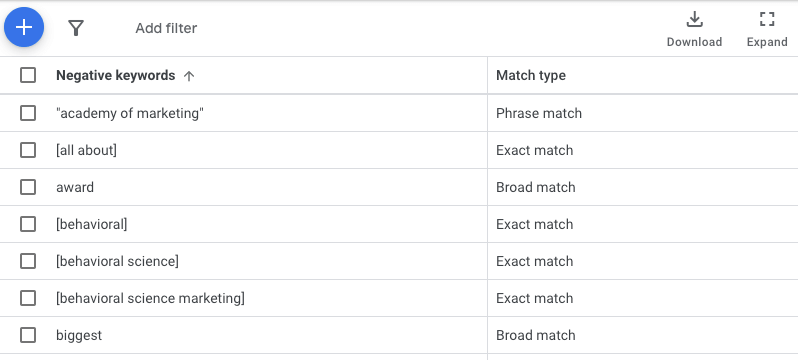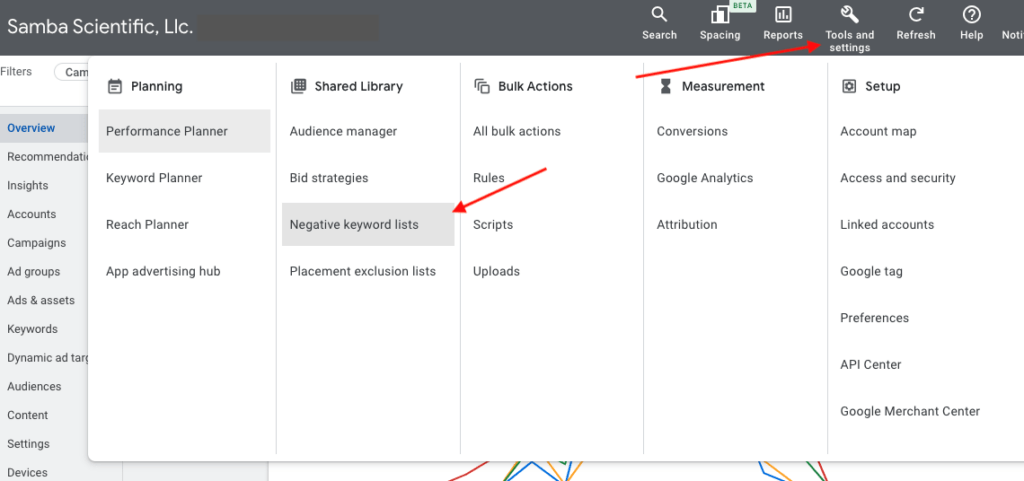Highlights
- What Are Negative Keywords: Negative keywords are search terms added to Google Ads to screen out irrelevant searches and avoid paying for low-quality clicks.
- Finding Negative Keywords: Analyze search query data, use Google Keyword Planner suggestions, and brainstorm adjacent keywords to uncover negative keyword opportunities.
- Adding Negative Keywords: Add negative keywords at the campaign or ad group level to prevent ads in unwanted searches.
- Strategies for Using Negatives: Create account-level lists, customize negatives per campaign, continually monitor performance data to refine targeting, and avoid overusing negatives.
What are Google Ads Negative Keywords, How to Use Them, and Strategies to Improve ROI
Google Ads Negative keywords allow you to screen out irrelevant searches and low-quality leads so that ads will be served only when appropriate. Implementing a thoughtful negative keyword strategy is crucial for reducing wasted ad spend, improving campaign relevance, and boosting return on investment. This guide will cover what negative keywords are, how to find and add them, and strategies for using them effectively. While you can use negative keywords on other paid platforms, we will focus on Google Ads in this article.
What Are Negative Keywords?
Negative keywords prevent ads from displaying in searches that include those terms or phrases—even when the query also contains positive keyword matches. They help ensure that ads will only show for relevant searches from users more likely to engage with your offerings.
Without negative keywords in place, ads may display in response to tangential or irrelevant searches, leading to poor click-through and conversion rates. Negative keywords refine your targeting to align with searcher intent, funneling your ad budget to the highest-quality traffic.
How to Find Potential Negative Keywords
There are several go-to approaches for identifying negative keywords.
Analyze Search Query Reports
Dig into your search query reports to identify low-performing queries with below-average click-through and conversion rates. These can signal irrelevant or disconnected searches for which your ads are showing but are not generating results. Add them as negative keywords to avoid wasting your ad budget.
While in Search Terms (“Keywords > Search Terms”), you can easily add irrelevant keywords or aspects of them as negative keywords for the ad group or campaign.
- Click the checkbox beside the search term
- Click “Add as negative keyword”
- Adjust if you want to add the negative keyword for the ad group, campaign, or to your default negative keyword list (more on that later)
- Adjust the negative keyword accordingly whether you want to include the entire phrase or just parts of it (i.e. “All about digital marketing” vs “all about”)

Review Keyword Planner Suggestions
Input your target keywords into the Google Keyword Planner and scan the related suggestions. Look for irrelevant or unrelated phrases with significant search volume and add those to your negative keyword list.
Brainstorm Adjacent Keywords
Manually brainstorm keyword variations and related terms that imply the wrong user intent. For example, a user searching for “thermocycler SOP” is unlikely to be in the market for a thermocycler, so the negative keyword “SOP” will help narrow ad service to users seeking lab instruments. Take note of similar terms that have potential for high search volume but low relevance.
Be judicious with negatives; overly restrictive use can block valuable queries. Start conservatively, adding only clearly irrelevant variations, then monitor search query metrics over time to refine.
How to Add Negative Keywords in Google Ads
Once you have a list of terms and phrases to exclude, add negative keywords at either the campaign or ad group level.
To add negative keywords in your Google Ads account:
- Click “Keywords > Negative Keywords” in the campaign you want to adjust
- Click the “+” sign on the next screen
- Select the appropriate campaign and ad group in the window that appears
- Select either “Campaign” or “Ad group” in the “Add to” dropdown menu
- We will get your Negative Keyword list in a moment
- Add negative keywords in the “Negative keywords” text box
- Click “Save”


Strategies for Using Negative Keywords Effectively
Here are some negative keyword strategies to improve the relevance of your Google Ads activity:
Create Account-Level Negative Lists
Build robust lists of negative keywords that you can add to all campaigns in your account, such as generic terms with high search volume but little commercial intent for your business.
Navigate to “Tools and Settings > Negative Keyword Lists”. From there you can input your list of negatives and then add it as a default to your campaigns as we described earlier.

Customize for Campaigns and Ad Groups
Tailor negative keywords specifically for different campaigns and ad groups in your account to ensure tight alignment with each focus area. For example, for your product-specific campaigns, you can exclude all searches that include “jobs”, “careers”, “free”, “cheap”, etc.
Monitor Performance Over Time
Continually assess search query data and add new negative keywords as you discover them. Pause negatives that may be blocking valuable traffic.
Implementing thoughtfully researched negative keywords aligned to search query performance helps ensure your Google Ads drive targeted, relevant traffic. Continual refinement of negatives further focuses budgets on best-fit searches and therefore improves conversions over time.
At Samba Scientific, we can help you with your Google Ads implementation and optimization. Let’s chat!
References:
Written by:
Josh Anderson is the Director of Operations at Samba Scientific. He is an expert in sales enablement, CRM optimization, digital marketing, and marketing strategy. Prior to joining Samba, Josh led numerous digital marketing teams, helped build inside sales teams, and scaled several businesses.





